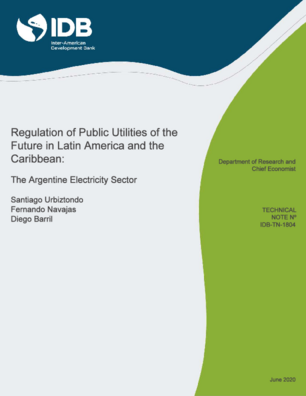Regulation of Public Utilities of the Future in Latin America and the Caribbean: The Argentine Electricity Sector
Date
Jun 2020
This paper presents an analysis of the main challenges faced by Argentina, regarding both institutional and tariff taxes subsidies accommodations, to properly handle the new opportunities behind Distributed Energy Resources (DER). Regarding electricity prices and tariffs, examining fixed and variable distribution margins in particular, the paper computes the rebalancing pre-tax tariff correctionskeeping constant net distribution incomesin various jurisdictions, requiring in all cases much higher fixed charges and lower variable charges than today in order to better reflect fixed and variable distribution costs, a pre-requisite to efficient DER development. While efficient in the longer run, such tariff adjustment is shown to have distributional impacts, which can be dealt with by compensating fixed transfers to the poorest 30 percent of users at a relatively low cost. Taxes and subsidies pursuing social and environmental goals also need major restructuring to be efficient and consistent with price signals leading to socially efficient decentralized decision. While these corrections are neither minor nor politically insignificant, a failure to accommodate institutional pricing subsidy tax rules and criteria will eventually lead to unsustainable distribution networks or inefficient duplication of costs.




